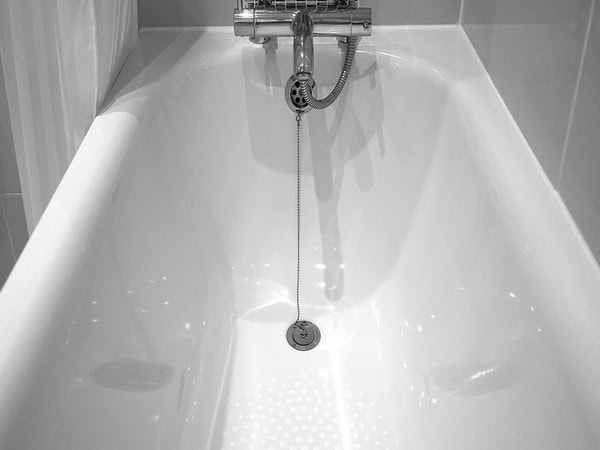Washington: When it comes to treating eczema, there’s no difference in the effectiveness of a bleach bath compared to regular water baths, according to a recent study.
In addition, the Northwestern Medicine study sound that the bleach baths can cause stinging and burning of skin, and occasionally even trigger asthma flare-ups in patients.
“I don’t know if it throws the baby out with the bathwater, but bleach baths lack the evidence to support how commonly they are being recommended,” said senior author Jonathan Silverberg. “The water baths appear to be doing most of the heavy lifting. If bleach is adding any benefit, it’s quite modest.”
The results should encourage patients with eczema to bathe regularly, Silverberg said. Many shy away from bathing for fear that it will dry out their skin, he noted.
A bleach bath is a bath with warm or cool water mixed with a small amount of bleach. Patients are instructed to submerge in the bath from the neck down and to avoid exposure of bleach near the eyes. Water baths contain only warm or cool water, and patients can use a bleach-free washcloth to wash their face.
Soap may not be necessary during water baths because it can be hard on sensitive skin, and Silverberg said soaking for 10 minutes in only water will effectively “wash away most the germs and crud from your skin.” After the bath is complete, patients are encouraged to apply ample moisturizer.
The study showed water baths were just as effective as bleach baths at reducing the severity of the visible signs and extent of eczema and bacterial infection.
Bleach is an additional expense for patients, another reason water baths are a better alternative. Bleach also can stain towels, linens and other clothing, sting or burn the eyes and open sores on the skin, and Silverberg has seen some patients experience asthma flare-ups from the bleach fumes.
The study also highlighted flaws and inconsistencies in current bleach bath studies. Many of the studies in the review did not control for whether patients immediately moisturized after the bath to prevent dryness. They also did not take into account if patients used soap or the types of soap they used in water baths.
“This study provides a blueprint for improving future bleach bath studies,” Silverberg said.
The study is published in the journal Annals of Allergy, Asthma and Immunology. (ANI)
For eczema, water baths as effective as bleach ones

